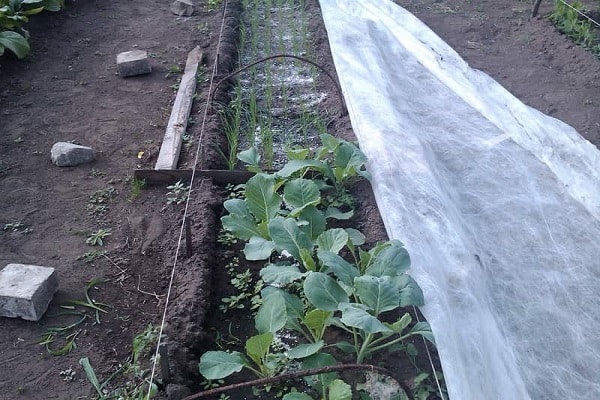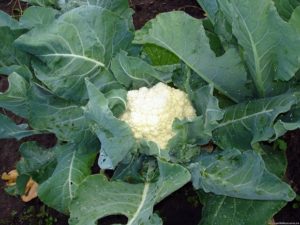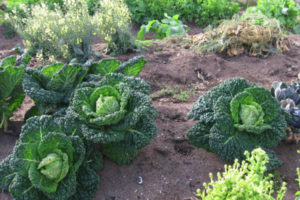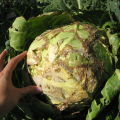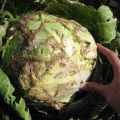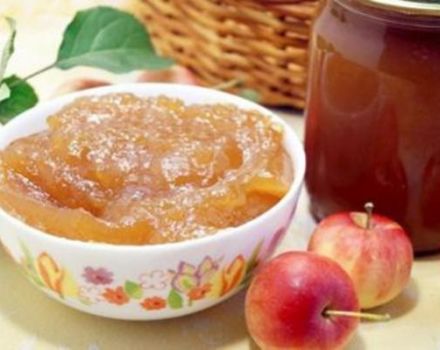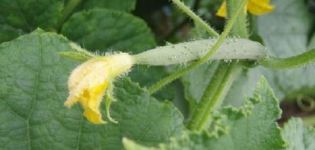The use of calcium and ammonium nitrate for cabbage
Many gardeners grow cabbage in the beds. Ammonium nitrate is traditionally used to produce healthy, strong heads of cabbage. An ideal nitrogen fertilizer has only one drawback: it acidifies the soil. This is acceptable for neutral and slightly alkaline soils. On acidic soils, cabbage does not tolerate such a reaction: development stops.
What should summer residents do, whose land is already acidified? Another fertilizer will help to grow the desired crop: calcium nitrate. When applied correctly, it does not change the reaction of the soil.
Why you need to feed
The gardener knows: cabbage is an overgrown bud. She loves nitrates. In the early stages of development, it absorbs them, instantly digests and requires new ones. Growing fast.
Without adding nitrates, you cannot get dense, heavy heads of cabbage. But plants accumulate surplus salts of nitric acid. The use of products becomes hazardous to health. It is required to comply with the terms of entry. The rate must be calculated accurately.

Calcium makes the cabbage digest nitrogen faster. Development and growth are accelerating. Gardeners notice the action of nitrate after 2-3 days. The kidney instantly builds up green mass.
Nitrogen fertilizers form a healthy root system. The plant absorbs water and nutrients. The ground part is actively developing.
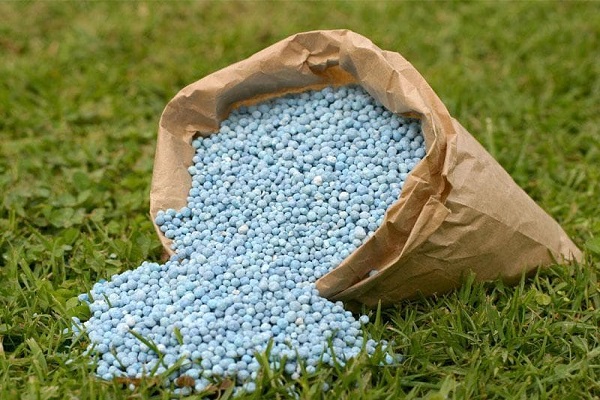
The accumulated nitrogen makes the plant attractive to pests. Caterpillars attack bushes. In gnawed leaves, photosynthesis is slower. It is Ca that prevents the formation of nitrogen reserves.
Pests damage weak cabbage. Plants must meet enemies strong, sturdy. Timely feeding of cabbage will save the gardener from the exhausting fight against pests and diseases.

How and when to add saltpeter
Calcium nitrate is a versatile remedy. Use cases:
- introduced into the soil;
- added to water when watering;
- given in the form of foliar dressing (spraying on the leaf).
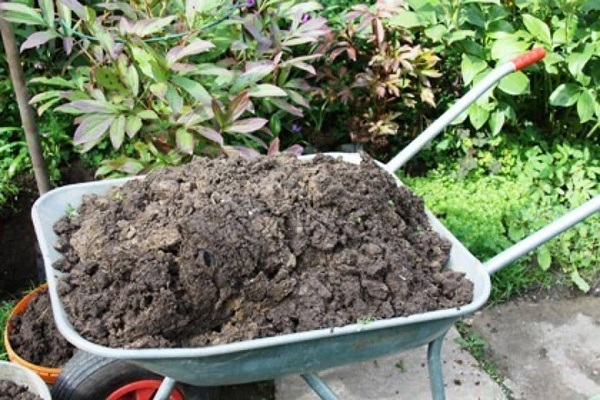
This substance should not be scattered around the plant or embedded in the soil before planting. It will not be possible to get the desired effect. It is required to follow the recommendations of agronomists.
The first time to feed cabbage with calcium nitrate should be at the age of a week. It is necessary to dilute a teaspoon of the substance in a liter of water. Water the plants gently at the root.
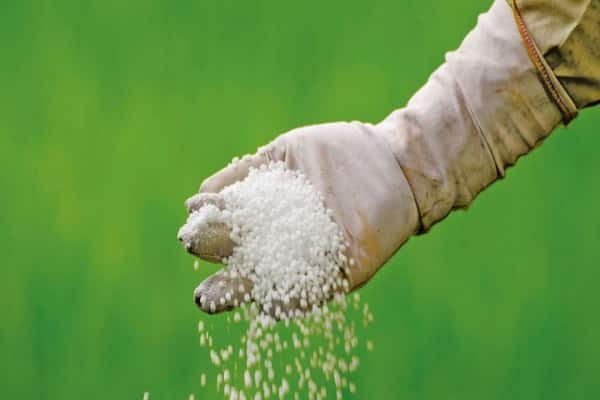
Spraying on the leaf gives good results. Working solution: a tablespoon of powder in 5 liters of water. Repeat foliar feeding every 10 days until the beginning of head formation.
A competent gardener necessarily feeds cabbage seedlings when planting on ridges. 1 teaspoon of fertilizer is added to each well. Sprinkles on top with a layer of earth of 1 centimeter. The roots do not touch the substance.They are drawn to her, actively growing. Fertilizer is assimilated as needed.

Why calcium nitrate
The traditional nitrogen fertilizer is ammonium nitrate. But it doesn't contain calcium. Biologists have proved that it is Ca that promotes the complete assimilation of nitrogen. Application advantages:
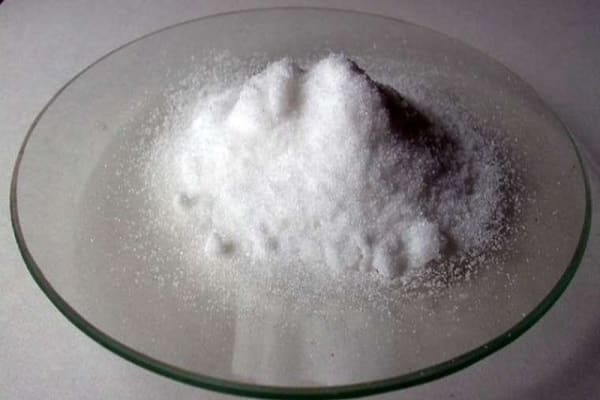
- The element strengthens the plant's root system. This is especially important for cabbage. The massive above-ground part requires full absorption of nutrients from the soil.
- Calcium neutralizes the effects of magnesium and iron. In acidified soil, elements are present in excess. They reduce resistance to disease.
- The consistency of cabbage improves. It becomes juicy and crispy. When fermented, salted, retains its color, does not soften. The taste is delicate and pleasant.
- There are no losses during winter storage. Heads of cabbage do not rot, they are not affected by molds.
- Cabbage becomes resistant to disease. Easily tolerates weather changes.
- Calcium makes the plant digest nitrogen faster. Cabbage has strong, dense leaves. Caterpillars damage them less.
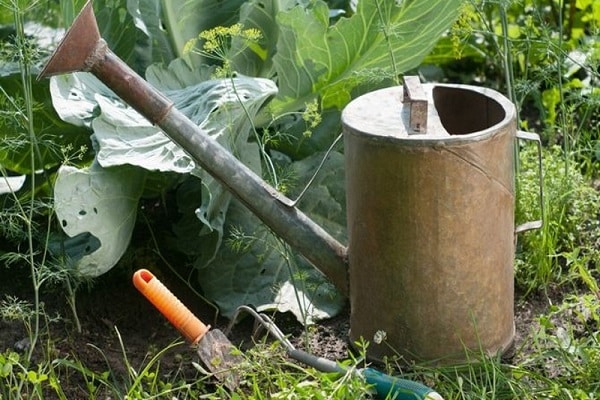
Some gardeners believe: once they brought in urea, added a mixture of phosphorus and potassium, nothing else needs to be used. Practice shows: you cannot get a decent harvest without special additives.
The use of calcium nitrate for cabbage supplements other supplements (mineral complexes). It is friendly to all fertilizers. The action of the substance is inhibited by simple superphosphate.
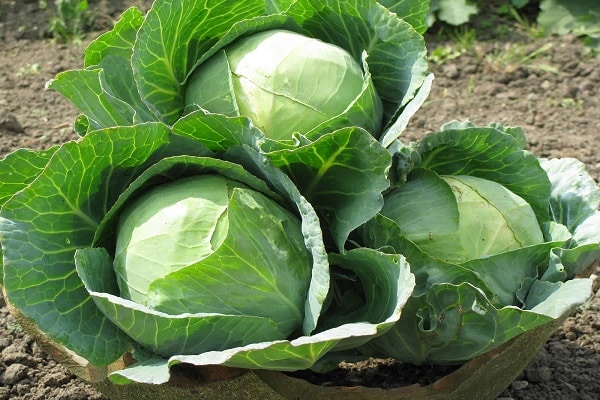
What fertilizer looks like
Any saltpeter contains a nitric acid (NO3) residue. It is attached to the basic substance (NH4 - ammonia, Ca - calcium).
Ca (NO3) 2 is a by-product in the production of nitric acid. The substance belongs to hazard class 3. When working with it, one should observe protective measures (wear gloves, protect eyes and respiratory organs, do not swallow).
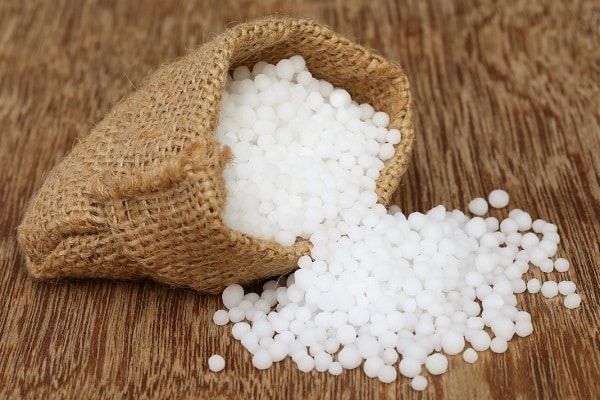
The fertilizer consists of 13% nitrogen and 19% calcium. Available in two forms:
- powdery;
- granular.
Calcium nitrate powder dries easily and turns into dust. When the humidity rises, the air gets into a ball. It is inconvenient to work with him.
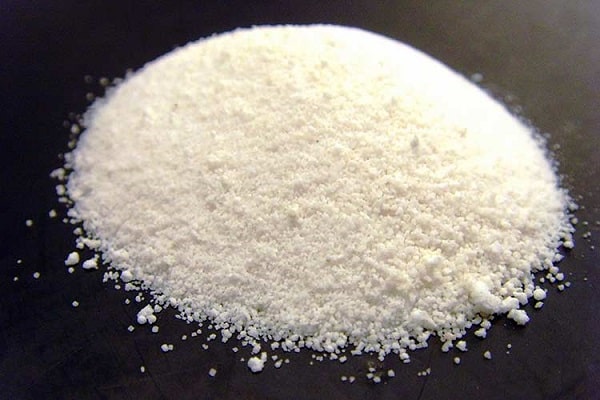
For use in vegetable gardens, the latter is preferable: it is not carried by the wind. In soil, under the action of bacteria and moisture, it acquires a chelated (easily digestible) form.
To reduce the moisture content, manufacturers add paraffinic components. The inclusion of NH4NO3 turns the powder into granules. Ammonium nitrate contains 26-34% nitrogen. An additional element is sulfur. This fertilizer saturates young plantings with nitrogen as much as possible. Ideal for neutral or slightly alkaline soils.
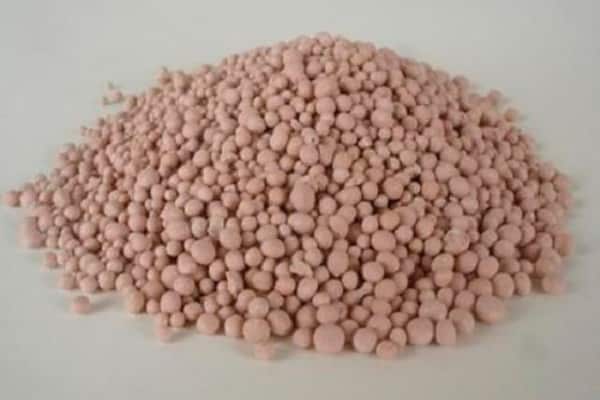
Calcium nitrate absorbs moisture easily. This feature must be taken into account during storage and transportation. Sold in packs up to 2 kilograms. Not used in large agricultural complexes.
Calcium nitrate should be applied exclusively in the spring before planting. It makes no sense to fill the ridges in autumn: salt dissolves perfectly in water. After the snow melts, it will not remain in the soil.
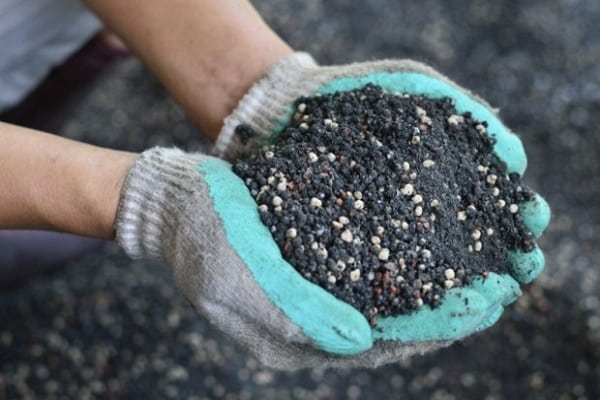
Brief conclusions
Cabbage must be fed with calcium nitrate. It grows large and tasty. Stored for a long time.
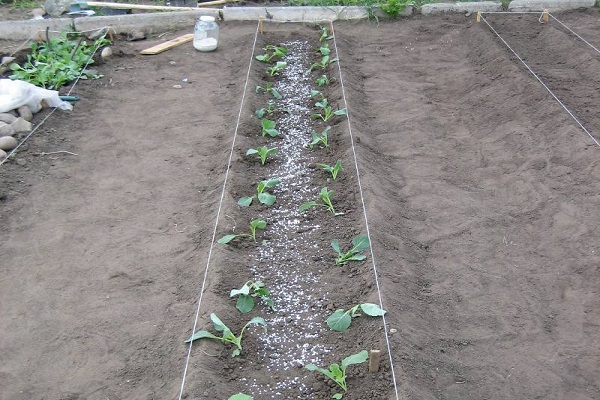
Fertilization rates must be observed. It is required to stop at the moment of rolling the leaves into heads of cabbage.
On slightly alkaline and neutral soils, gardeners use ammonium nitrate.
